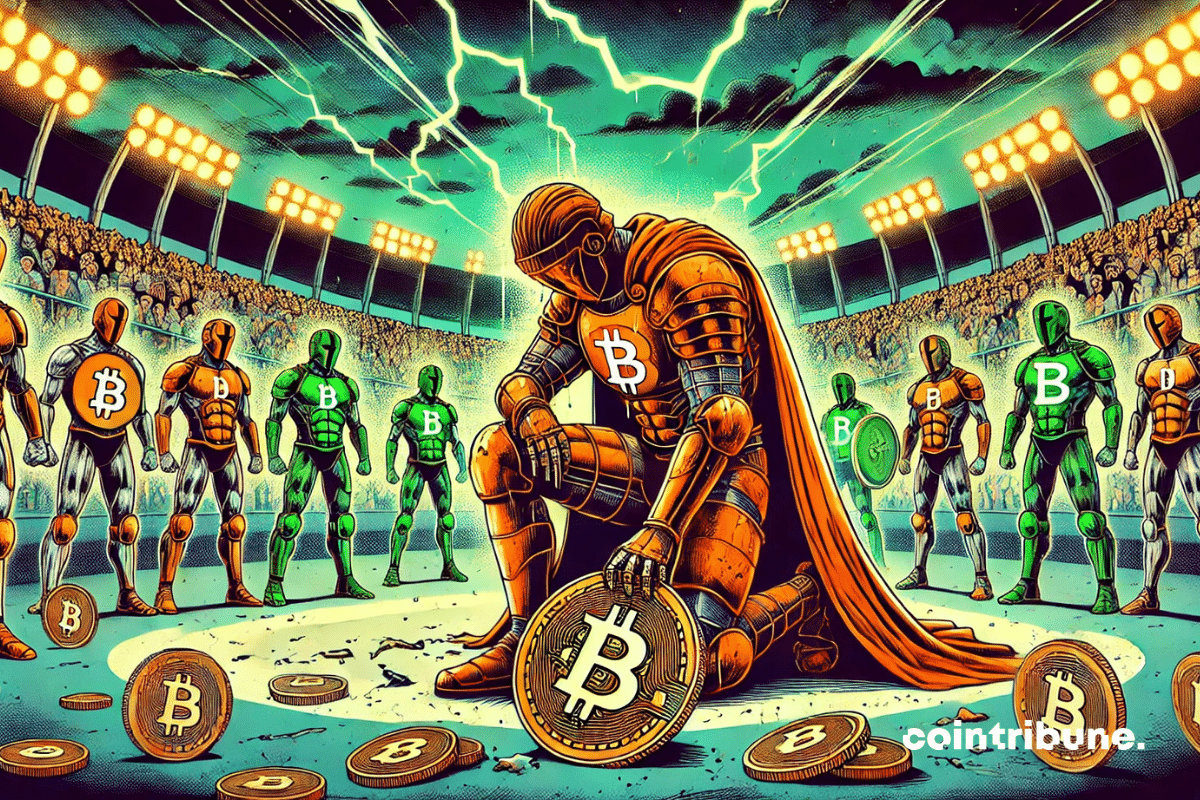The French deficit explodes! The causes of this slide are being investigated by a parliamentary commission of inquiry. As France appears to be descending into an unprecedented debt spiral, Macron seems to be solely responsible for this devastation.

Commission of Inquiry: a turning point
The Finance Committee of the National Assembly is changed to commission of inquiry. Its mission is to understand the causes of deviations and inconsistencies in tax and budget forecasts. Eric Coquerel and Eric Ciotti will lead the investigationwith extensive powers to access administrative documents.
This decision marks a significant shift in the balance of power. For the first time in a long time, Parliament appears to be regaining control over key public finance issues. This commission shall have the power to subpoena witnesses and require the production of documents, including those that the executive usually keeps secret.
A trial with Emmanuel Macron?
Bruno Le Maire’s hearing will be closely watched. The reasons for this budget slippage will have to be explained by the Minister of Economy and Finance. But outside his person, the entire economic policy of the five-year period will be examined.
Some commentators are already wondering the role of the head of state in the cover-up seriousness of the situation for several months. Gérard Larcher, President of the Senate, made a statement full of meaning: “They did not tell us everything. » This statement suggests that crucial information may have been deliberately withheld to Parliament and to the French.
This commission could mark the beginning of a the true test of macronism. Parliament appears to be regaining control in the face of a weakened executive.
Macron’s damning record
Emmanuel Macron appears as a failed reformer. After coming to power in 2017, he promised to consolidate public finances and revive the economy. The result is quite different.
The debt exploded, rising by nearly €1 trillion under his mandate. This dizzying increase represents almost A 50% increase in just seven years.
The Covid crisis certainly played its role, and that “whatever it takes” which costs twice as much as elsewhere in Europe. However, this policy is insufficient to explain the extent of the slippage. It seems that the very structure of the French state, with its very broad scope of activity, intensified the effects of the crisis.
Macron did not reform pensions
Structural reforms such as pensionsthey were too timid or poorly led. point pension reform, originally planned for 2019, it was abandoned in the face of social protest. Replacing it with a timid reform in 2023 did not make this possible fix basic system problems.
Loss of the absolute majority in the parliament paralyzed government action. Unable to push through its reforms without compromise, the executive found itself in a bind unprecedented institutional blocking.
France in a debt spiral
The situation is alarming. The debt burden could reach 120 billion euros per year up to 7 to 8 years. This dizzying number would represent almost 40% of the current state budget. To understand the scale of the problem, we need to understand the mechanism of debt.
Every year, it will be necessary to find another 15 billion euros just to pay the interest. This mechanical increase is due to rising interest ratesdecades of artificially low rates thanks to the policy of the European Central Bank.
The problem is made worse by the fact that France continues to run a large deficit. With a deficit of 5% of GDP that is approximately €150 billion of additional debt each year. This new debt will have to be financed at higher rates, creating a snowball effect.
The French tax system is also problematic. He prevents enrichment while allowing the wealthiest to stay that way. This dynamic slows down social mobility and innovation. in France, 70% of great wealth is inheritedcompared to just 30% in the United States or the United Kingdom.
This tax structure creates a rent economywhere it is difficult to get rich through work and innovation, but relatively easy to keep the acquired wealth. This lack of economic dynamism it weighs heavily on the country’s ability to generate growth and therefore repay its debt.
Macron euthanized the 5th Republic
The current crisis could accelerate the transformation of the French political regime. The transition to a more parliamentary system, with the introduction of proportional representation seems inevitable.
This development would allow better control of the administration and more intelligent politicization of the population. The public debate would become more mature, less focused on the person of the president.
In a parliamentary system, important decisions are made in parliament, which requires commentators and citizens interested in the substance of policies rather than the personalities of leaders.
The marginalization of Emmanuel Macron in front of the parliament can already be seen. From an absolute champion in January, able to pass an immigration bill against the advice of parliament, today he finds himself largely limited by MPs. This loss of presidential power may mark the end of the “republican monarchy” established by the Fifth Republic.
The introduction of proportional representation would speed up this process. It would be almost impossible to get an absolute majority for one party, forces the formation of coalitions. This system would favor consensus and compromise rather than the current binary confrontation.
Macron, the future Louis 16?
The parallels with the pre-revolutionary period of 1789 are striking. As Louis XVI, Macron seems unable to deliver the necessary reforms face to face debt explosion.
In 1789, the kingdom’s debt reached approximately 80% of the then GDP. Debt service accounted for 42% of government revenue. Today, although the situation is not yet so serious, this trend is worrying. We could achieve 30% of revenues will be dedicated to debt service by 2027.
The first reaction of the deputies in 1789 was to to seize the property of the clergy in an attempt to replenish the state coffers. Today it seems that some MPs are tempted by the same approach, multiplier proposals for new taxes.
However, history shows this real liberal reforms intervened only at a later stage. The Allard Decree and the Le Chapelier Law, which really liberalized the French economy, were only passed in March and June 1791, almost two years after the start of the revolution.
Parliament against the Elysees
The positive aspect of this crisis is that more and more complex topics such as taxes, the state budget or the functioning of institutions are being discussed, including external professional circles.
This development is crucial for the future of the country. A more informed and engaged population is better able to understand issues and participate in democratic debate.
This political maturity is a necessary condition for carrying out the demanding reforms that are necessary.
We are already seeing developments in the public debate. The media is becoming more interested in budget issues, beyond simple announcements. Citizens demand more transparency on handling public money.
This collective consciousness could be a prelude to deeper changes.
Challenges Ahead
France is facing crucial elections. To avoid bankruptcy, it will be necessary to find approx Savings of 200 billion euros per year over the next ten years. A colossal challenge that will require deep structural reforms.
Liberalization of the economy seems inevitable. Like Allard’s decree of 1791, which abolished corporations and their stifling regulations, France will have to deal the regulatory jungle that holds back its economy.
State reform is also a priority project. The scope of the French state’s activities, much wider than that of its European neighbours, will have to be reassessed. This reform will be painful because it will call into question many social achievements.
Finally, the tax system will need to be fundamentally overhauled. The goal will be create a dynamic conducive to enrichment through work and innovation rather than through income and inheritance.
Macron has destroyed the country
France finds itself at a turning point in its history. The debt crisis could precipitate a fundamental overhaul of its institutions and its economic and social model.
Macronism seems to be the last gasp of a system that is running out of breath.
A parliamentary commission of inquiry could be the starting point of a new political era. One thing is certain: the coming years promise to be eventful and full of debates for French society.
Maximize your Cointribune experience with our “Read and Earn” program! Earn points for every article you read and get access to exclusive rewards. Register now and start reaping the benefits.

Every day I try to enrich my knowledge about this revolution that will allow humanity to advance in the conquest of freedom.




Comment